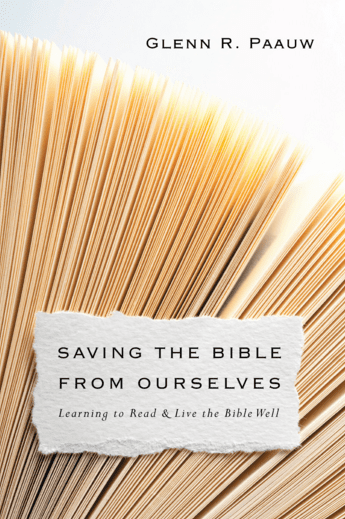 Scripture plays a foundational role in the Christian faith on both an individual level and a corporate level. In fact, the centrality of scripture to the Christian faith is hard to argue. It is the self-revelation of God, so Christians believe. Without the Old Testament we would know little or nothing of God’s relationship to or interaction with the world, from the calling of Abraham and Israel to the significance of the Davidic kingdom or the exile. Without the New Testament we would know next to nothing about the life, death, and resurrection of Jesus as the fulfillment of the Old Testament and the turning point in the work of God in creation.
Scripture plays a foundational role in the Christian faith on both an individual level and a corporate level. In fact, the centrality of scripture to the Christian faith is hard to argue. It is the self-revelation of God, so Christians believe. Without the Old Testament we would know little or nothing of God’s relationship to or interaction with the world, from the calling of Abraham and Israel to the significance of the Davidic kingdom or the exile. Without the New Testament we would know next to nothing about the life, death, and resurrection of Jesus as the fulfillment of the Old Testament and the turning point in the work of God in creation.
The Rev. Dr. John Polkinghorne opens his short book Testing Scripture: A Scientist Explores the Bible with a reflection on the importance of scripture.
Scripture has been very important to me in my Christian life. For more than sixty years I have read the Bible every day, and when in middle life I was ordained as an Anglican priest, I undertook the welcome duty of saying the Daily Office. Every year this takes me through the whole of the New Testament and a good deal of the Old Testament.
… there is great spiritual truth and beauty to be found in Scripture. Anyone who has listened to a performance of Handel’s Messiah, where the text is drawn wholly from the Bible, will have caught a glimpse of the majestic power and hopeful promise that are to be found in the pages of scripture. (p. ix-x)
The nature of the bible raises major questions for many today, however. Many doubt that the bible can be read both critically and religiously. Either the critical reading must undermine the religious experience or the religious reading must ignore the critical analysis. Dr. Polkinghorne disagrees – it is possible, he asserts, to read the bible as a believer, in an intellectually rigorous way.
How can the modern educated person read the bible as a Holy Book?
Outside of the church many look at the problems involved in interpretation and dismiss scripture as nothing more than a collection of ancient myths and fables and common sense wisdom. A book of historical and cultural importance, but of no greater significance.
Even those who grow up in the church struggle at times. The Bible is a complex and multifaceted book. It is not possible to read the Bible from a position of simple faith, as though it speaks without interpretation. There is no such thing as uninterpreted scripture. The simple act of translation – across language, culture, and years – is an act of interpretation. Much that is written in the Bible seems strange, out of place, or just plain incredible to modern western reader.
Dr. Polkinghorne has written this small book Testing Scripture: A Scientist Explores the Bible to explain his approach to scripture. An approach that combines both his training as a scientist and his faith as a Christian.
When I became a middle-aged student at a theological college, the lectures I enjoyed most were those concerned with biblical studies. I had a long career as a theoretical physicist, and the instinct of a scientist in approaching any new field of inquiry is to ask first what are the basic phenomena that will motivate and control the search for a truthful understanding of what is going on. In considering questions of Christian belief, the Bible gives us accounts of the history of Israel, the life, death, and resurrection of Jesus, and the first thoughts and experiences of his earliest followers. These are the foundational phenomena of the Christian tradition. (p. xi)
In this book Dr. Polkinghorne sets out to assess the claims and forms of scripture with the same intellectual rigor he brought to the study of particle physics. Yet the book is not a detailed academic monograph. Rather it is a short book written for the average believer or inquiring seeker who finds himself or herself wondering how scripture can be taken seriously in the twenty-first century. The principle purpose of the book is “to help the contemporary reader to engage in a serious and intellectually responsible encounter with the Bible.” Rigorous literalism has no place in his approach – yet faith, devout, orthodox Christian faith is central to Dr. Polkinghorne’s life and to his reading of scripture.
In the future posts in this series we will look at a number of the examples Dr. Polkinghorne has chosen to illustrate his approach to scripture. These examples range from Creation and Fall to Cross and Resurrection, with Israel’s Bible and the Pauline Writings thrown in for good measure. For today however, I would like to end with a question.
Is it right to test and explore scripture?
Should we bring the same intellectual rigor to the study of scripture that we bring to other academic endeavors?
Why or why not?
If you wish to contact me directly you may do so at rjs4mail[at]att.net.
If interested you can subscribe to a full text feed of my posts at Musings on Science and Theology.











